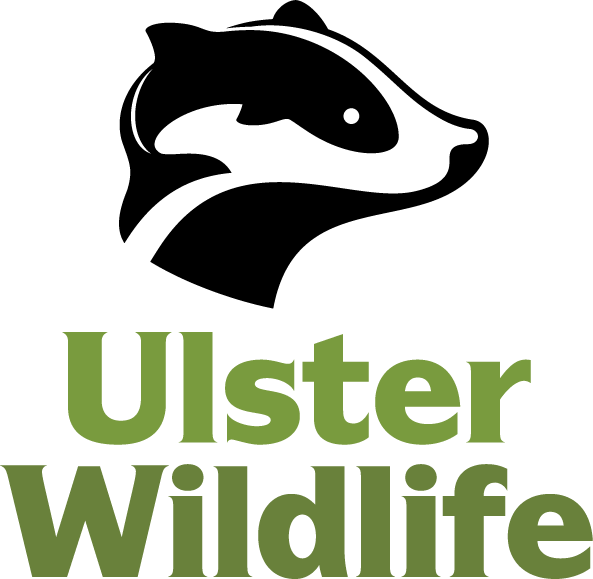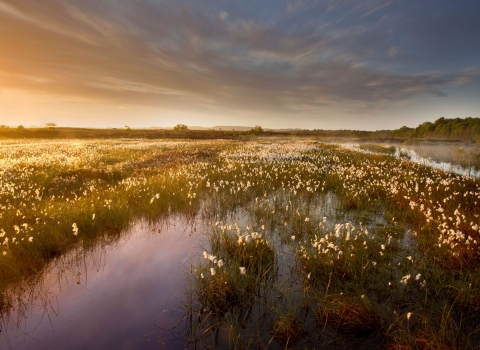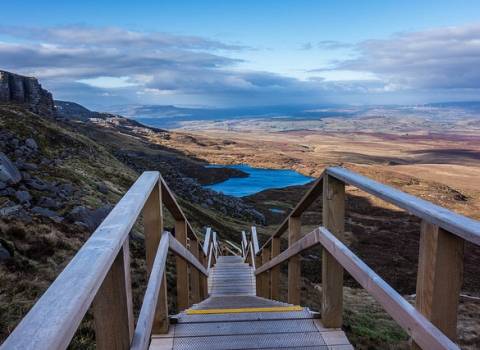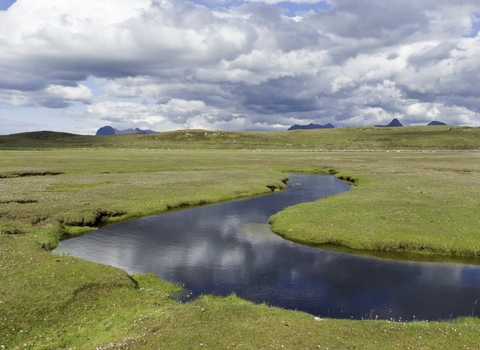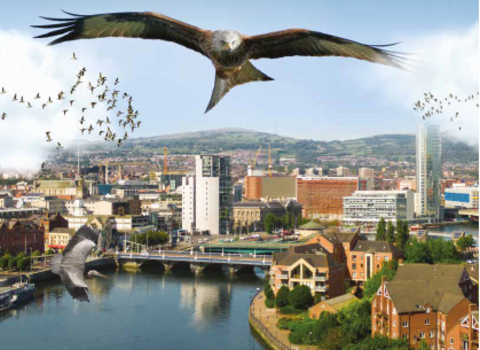A global emergency
We are in the middle of a climate and nature emergency, and the two are inextricably linked. Climate change is driving nature’s decline, and the loss of wildlife and wild places leaves us ill-equipped to reduce carbon emissions and adapt to change.
One cannot be solved without the other. Without urgent and transformative change, we face a very uncertain future.
We know from experience that restoring nature can help soak up carbon emissions - known as nature-based solutions to climate change - whilst contributing many additional benefits. When healthy, our natural habitats can reduce the risk of flooding, help prevent coastal erosion, improve people’s health and wellbeing, as well as maintain healthy soils, clean water, and the pollinators needed for our crops – and therefore sustain us.
Nature itself is at risk from climate change, but if helped to recover, its potential to store carbon and help with our resilience to change does mean it can help us to turn the tide on the climate catastrophe.
What is Ulster Wildlife doing?
For decades, Ulster Wildlife has been working on the ground, across Northern Ireland, to restore nature. We protect and recover important habitats that lock carbon safely away and limit the effects of climate change, including peatland, fens, wetland, grassland and woodland.
We are also exploring the role of marine habitat restoration, such as shellfish reefs, saltmarsh and seagrass, which could have great potential to store carbon and help make coasts more resilient to sea level change, erosion and flooding.
We've also long called for changes in laws and practice that properly protect and restore nature, including a Nature Recovery Network to map, join-up and restore habitats.
In response to the climate crisis, Ulster Wildlife is:
- Stepping up our work to restore vital habitats and natural climate solutions at a landscape scale. We are currently developing and implementing restoration and management plans for 13 peatland sites across Northern Ireland, and recently commissioned a study to assess the potential of local blue carbon habitats to tackling the climate crisis.
- Calling for investment in nature-based solutions to climate change and nature's recovery, as a priority in tackling climate change, such as plans to achieve a legally binding net zero target in Northern Ireland by 2045.
- Working with partners to push for the creation of a Northern Ireland Nature Recovery Network to restore thriving ecosystems and give wildlife space to adapt, including the creation of a first set of ‘ecological network’ maps for Northern Ireland.
- Ensuring natural solutions are at the heart of local and national decision-making, such as planning, and working to protect them from damaging development and infrastructure projects.
- Working to ensure people of all walks of life can connect with and enjoy nature, for the benefit of our health and wellbeing.
- Improving our own internal practices as an organisation to minimise our carbon footprint through our waste, energy use and use of transport.
Nature-based solutions to climate change
Our habitats on land and at sea have a huge role to play in addressing climate change. Globally, plants have removed 25% of human-made carbon emissions, whilst our soils contain more carbon than is stored in those plants and the atmosphere combined!
Oceans absorb 20-35% of human-made carbon emissions every year. Carbon is part of the whole system - stored in the tissues of the plants and animals, and in the seabed sediments.
Find out more about the green and blue carbon solutions to climate change, that we are working to protect, promote, and recover.
